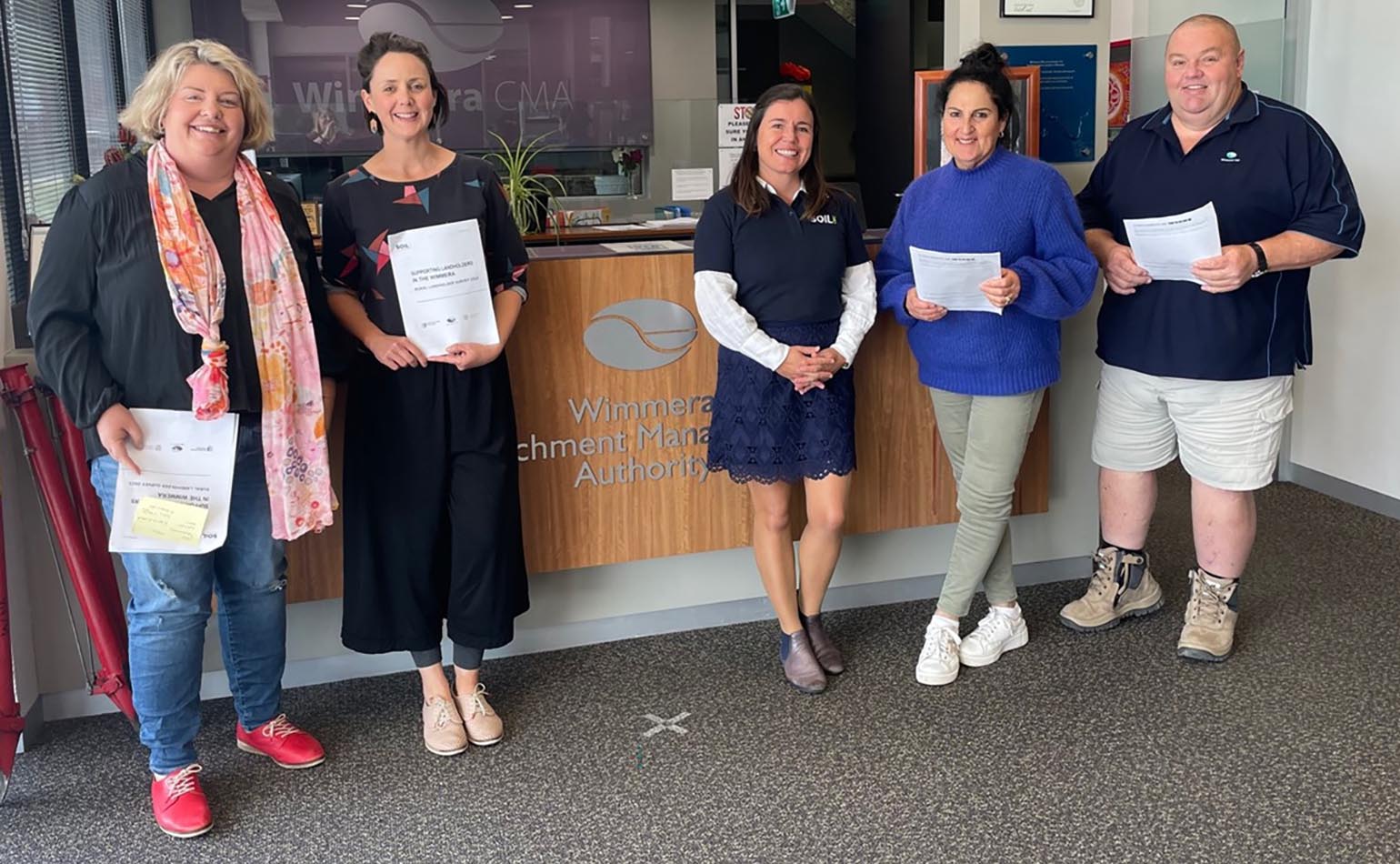The Soil CRC’s social benchmarking of rural landholders across Australia wraps up this month with the release of the final reports for Tasmania and the Wimmera region in Victoria. Led by Dr Hanabeth Luke (Southern Cross University), the latest research completes a nationwide study focussed on land management practices, previously delivered in North Central Victoria, South Australia, Western Australia and New South Wales.
Over 800 Tasmanian and Wimmera land managers were surveyed as part of the recent study, bringing the total number of participants across Australia to 2700.
“Improved understanding of farmer decision-making can help to increase long-term soil health and productivity, informing strategic planning and building innovation capacity,” Dr Luke explained.
“The social benchmarking method has been developed and adapted from well-established research techniques in rural sociology, to explore the complex factors driving the management of soils and landscapes.
“Improved understanding of farmers and their practices will help the Soil CRC, farmer groups and NRM organisations to better target their innovations and communications, as well as contributing to their strategic planning,” Dr Luke said.
The social benchmarking project was delivered by a team of researchers and staff from Southern Cross University, Charles Sturt University, Agricultural Innovation and Research Eyre Peninsula (AIR EP), Wimmera CMA, West Midlands Group, Western Australian No-Tillage Farmers (WANTFA), North Central CMA, NSW Department of Primary Industries, Central West Farming Systems, Southern Farming Systems and Soils for Life.
“I worked closely with my Southern Cross University colleagues Mat Alexanderson and Dr Penny Cooke to implement the surveys and write up all the findings,” Dr Luke said. “But a project such as this requires a large team to be working together across organisations to develop regionally relevant surveys.”
Wimmera CMA chief executive David Brennan said survey results helped the CMA understand key issues facing farmers so they could submit project and funding bids that would have the most impact and relevance for the region. He said it also provided an invaluable insight into property and regional-scale issues that mattered most to farmers.
“This knowledge from the grass roots also helps us strengthen the partnerships we have with the farming sector, which is really important when we are working on environmental projects, particularly on private land,” Mr Brennan said.
Results and findings
- Passing on a healthy and sustainable farm for future generations was the most commonly held value for farmers across all six regions.
- Looking after family and their needs, preventing pollution, protecting natural resources, creating wealth and striving for a financially profitable business were other important values.
- Including family in decision-making has emerged as an important element of farm management that is more likely to result in the implementation of resilience-building practices, from whole-farm planning and maintenance of ground cover to succession planning.
- Just under half of the full-time farmers surveyed saw themselves as ‘early adopters’. About 15% of farmers across regions see no reason to change their practices and are happy even if their farm may not be ‘the best farm around’.
- Soil erosion due to wind or water, low biological activity in soils and the declining nutrient status of soils are important property-wide issues across the survey regions.
- Beliefs around climate change varied across the six regions surveyed, but it emerged as a key emerging issue, alongside succession planning.
- Many farmers are implementing regenerative practices without necessarily identifying as regenerative farmers, as described in a paper recently published in Environmental Management.
Resources
This research delivered a range of useful resources, which have been shared with our local partners and are now available on the Soil CRC website. Here you’ll find a social benchmarking report for each of the six regions, easy to read summary reports and infographics.
Next steps
A new Soil CRC project led by Dr Luke will deliver follow-up social benchmarking surveys between 2024 and 2026, to discern changing practices, values, beliefs and attitudes over time and across Australian farming regions.
“These follow-up surveys will also provide a means to evaluate the impact of the Soil CRC and its partner organisations over time,” Dr Luke said.

